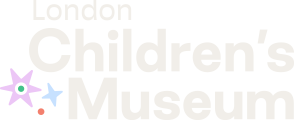Halfway through summer, caregivers start to hear the calls of “I’m bored!” more and more.
What’s the deal with boredom? Is “being bored” all that bad?
We discussed the benefits of boredom with Hannah and Stephanie, our Early Years Facilitator and Education Specialist at the London Children’s Museum.
We hear it from educators, psychologists, teachers - there’s nothing wrong with a little boredom! Why is ‘being bored’ so important?
Stephanie: “Boredom promotes imagination, creativity, and resourcefulness. It also helps children learn independence. When children are allowed to decide for themselves what they would like to do and how they would like to do it, it creates powerful learning experiences.”
Hannah: “Boredom challenges children to think outside-the-box. As adults, we tend to offer children activities that offer instant gratification. These experiences can be fun, but they’re not highly rewarding.
Boredom, on the other hand, often results in play activities that delay gratification. These tend to be larger projects that change and evolve, creating memorable and profound learning experiences.”
How does boredom benefit a child’s development?
Hannah: “Boredom gives children time to be self-reflective. It allows them to be still enough to think about their experiences, wonder about the past, and day-dream about the future. It’s part of being human!”
Stephanie: “When children experience boredom, they learn essential life skills, like self-regulation, patience, planning, and resiliency. They learn to stretch their attention span, a useful thing to do at any age.”
Why are people afraid of boredom?
Stephanie: “Caregivers want the best for their children. We often feel pressure to fill up all the time and space with fun activities, games, and adventures. It’s easy to forget how important unstructured play time is.”
Hannah: “It’s also important to remember, there’s nothing wrong with structured play or instant gratification - it just can’t be the only type of play a child experiences. Like everything, it’s about balance.”
Do you have any tips for how caregivers can respond to the cries of, “I’m bored”?
Stephanie: “It’s important to provide the right tools and materials. Open-ended materials are really great for inspiring creativity in times of boredom. Blocks, water, sand, paint - these types of materials can be used in so many different ways.”
Hannah: “Sometimes children experience boredom when they aren’t being challenged by their play experiences. We can open up their possibilities by allowing them to engage in messier and riskier play.
Early years children may enjoy taking every item out of the cupboard, while older children may enjoy building with real tools. Many children may need a space to store and work on their messy projects for days, or even weeks. Providing a flexible environment is essential to healthy boredom.”
Stephanie: “Ultimately, caregivers know their children best. Each child’s individual needs, interests, and abilities should be considered when dealing with boredom. And don’t forget, caregivers get bored too! You can always decide as a family how to make the most of out boredom!”
Hannah Platt, Early Years Program Facilitator at the London Children’s Museum.
Stephanie Meng-Ramirez, Ontario-certified teacher and Education Specialist at the London Children’s Museum.

